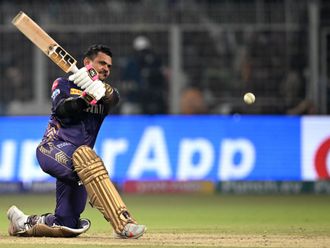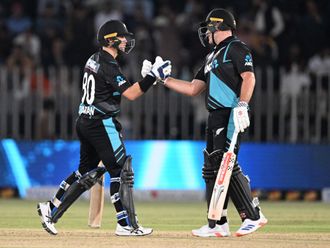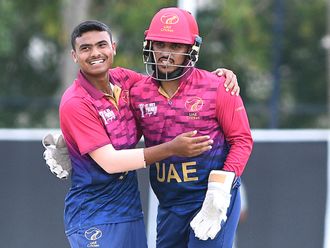Only the other day, Indian Sports Minister M.S. Gill came down heavily on the IPL, saying that it was merely running a business while the Board of Control for Cricket in India (BCCI) has been supporting it. One usually tends to brush off such remarks as the one-off rant of a spoilsport these days, but Gill's comments assume significance as he seemed to have done his homework.
Now as the IPL-3 is reaching its business-end, with the promise of it coming back bigger next year, there is some apprehension whether the game's hottest property is turning out to be the ghost of Frankestein for the BCCI. One cannot help but marvel at the marketing and growth of the product — where every professional cricketer now wants to play in, but it's the trappings along with it which raises an element of concern.
And this is where the Indian board seems to have become a hostage to the League's success, flying high without almost knowing where to stop. The marriage of cricket and entertainment has been the sure-fire recipe behind the IPL becoming such a hit, and nobody was complaining if it entitled the cricketers to certain ‘privileges' beyond their astronomical fees. After all, cricketers and night lives always go hand in hand, but what they did beyond the playing hours belonged in the realm of their ‘private' lives.
But, not anymore. The business acumen of IPL (or is it one man?) now offers you access to the IPL night after parties — for candid shots of what's a melting pot of the cricketers, Bollywood, fashion, business tycoons, agents and what have you. A fly on the wall says that beyond the boundaries, there are also subtle rivalries as to which city hosts the best party.
Fair enough, but there's no gain saying that such an environment is also the perfect breeding ground of corruption in the game — but the Indian board seem to be oblivious about it this time. This is the same BCCI which restricted entry of friends and hangers-on in the players' arena and barred the use of mobile phones for players in an effort to sanitise the game not so long ago.
Blind eye
There are more examples of the Indian board choosing to turn a blind eye to the conflict of interests that the IPL is party to — and Gill did stir up a hornet's nest by talking about it. The BCCI secretary is also one of the franchise owners, while the chief selector of the national selection committee is also their brand ambassador!
One only hopes that the Indian team does one better than its first round exit from the Twenty-20 World Cup, which starts right at the end of the IPL. If Dhoni and co fail to do so, then some senior board official may again raise his finger at the IPL for all the ‘ills' afflicting Indian cricket like last time.
So much for the BCCI and consistency!












